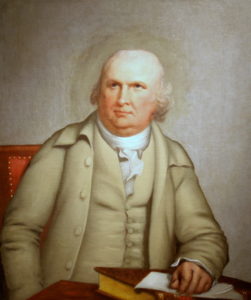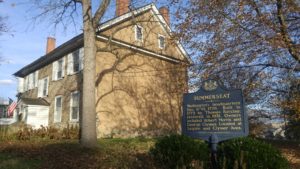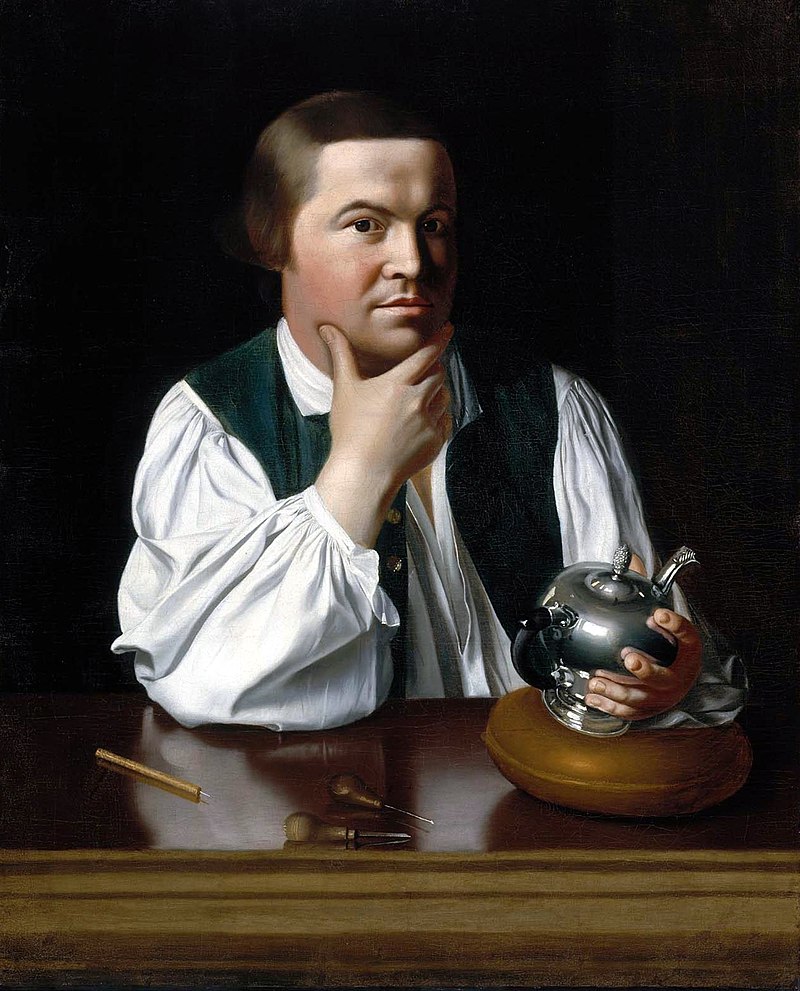Looking back on the secret mission to find the founder of Morrisville.
The situation looked grim to Paul Revere that November of 1775.
It was the beginning of the American Revolution. Great Britain’s army had occupied Boston, forcing Revere and his family to retreat across the Charles River to safety in Watertown. This was six months after his famous midnight ride, shouting “the British are coming!” The break-away Massachusetts Provincial Congress also had retreated to Watertown where it employed Revere as a courier. There was much to worry about. Without a gunpowder mill, the entire colony could be crushed by the Redcoats with no way to defend itself. King George III had banned gunpowder imports to the Colonies. The only source was a mill in Philadelphia, unique in the colonies.
The legislators decided to send Revere on a secret ride down the Eastern Seaboard to seek out Robert Morris at his Summerseat mansion in the future Morrisville in Bucks County. If not there, in Philadelphia where the rich import-export merchant was a powerful member of the Second Continental Congress. The legislature were leaning on Morris’ personal fortune to help finance the rebellion. He and other delegates from the 13 colonies had just passed legislation to establish the American Navy in anticipation of a full-fledged war. The congress also authorized Morris to secretly solicit aid from European nations, especially England’s arch enemy France.

Revere, a silversmith by trade, was hopeful Morris would use his influence to gain him access to Philly’s gunpowder mill. He was to return home with plans, specifications and the knowhow to construct a similar plant. As the Massachusetts congress put it to Revere, “Obtain an exact plan of making powder, powder mill, the quantity of powder that may be made in one day in said mill, the expense of the powder mill.” His directive also was to get in touch with Massachusetts delegates to the Continental Congress meeting in Philadelphia for their help.
It would be quite a long ride of 300 miles to reach the city. The congress supplied Revere with a letter asking “all person upon the road” to assist the rider “with horses or any other thing he may stand in the need of.”

When Revere reached Trenton, he crossed the Delaware to Summerseat before continuing south on the King’s Road (today’s Route 13) through Bristol to Philadelphia. There he caught up with Morris where the congress was in session at Philadelphia’s State House. Joining both men was delegate John Dickinson who was working on a final draft of the Declaration of Independence to be voted on the following July 2. Morris and Dickinson endorsed what Revere wanted to do and gave him letters of introduction to Oswald Eve, former ship captain and owner of the gunpowder mill in today’s Frankford section of the city. The letters stressed the importance of giving Revere full access to the plant so Massachusetts could be better prepared in its growing armed conflict with King George III.
Eve was skeptical. He suspected the “ingenious Yankee” would set up competition with his mill. In Eve’s mind as reported, “Let Revere make his powder in the old fashioned way – collecting urine.” A key ingredient of saltpeter used to make gunpowder was urine – and other ingredients. It was a labor-intensive process. Animal droppings containing nitrogen were combined with slaughterhouse sweepings, vegetables and weeds, all collected in heaps in a shed to ferment. Workers ladled limestone, mortar and ashes atop the pile to aid the process, and regularly moistened the whole with urine from stables and elsewhere. Eventually the “saltpeter house” produced the explosive element of gunpowder.
Eve’s Franklin Powder-Mill had mechanized the process. He was unwilling to fully disclose it to the visitor despite the wartime emergency. Still, Eve feared retaliation from Morris if he did not at least show his visitor around. “He walked Revere through rapidly and did not let him study the machinery nor question the workmen,” according to historian Esther Forbes. “This brief walk was enough for Paul Revere, although it must have been a bitter disappointment.”
When the famous rider from New England asked for detailed drawings of the mill, Eve refused unless Revere paid him a large bribe. The courier was in no position to comply and returned to Center City. There Sam Adams, the Massachusetts delegate to the Continental Congress, used his influence to obtain plans drafted secretly by a worker at the factory. With those documents in hand, Revere split for home and set up a gunpowder mill in present day Canton, Mass., 20 miles inland from Boston and very difficult to reach by the British.
Thanks to Revere’s perseverance and the long ride that passed through Bucks County, the new mill soon produced vast quantities of gunpowder to help win the Revolution.
Sources include “Paul Revere and the World He Lived In” by Esther Forbes published in 1942 and available at the Wrightstown Village Library; also “History of the Explosives Industry in America” by Arthur Pine Van Gelder and Hugo Schlatter published in 1927.

